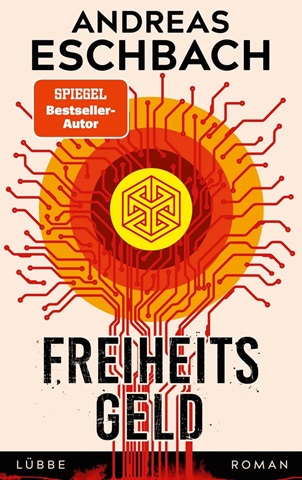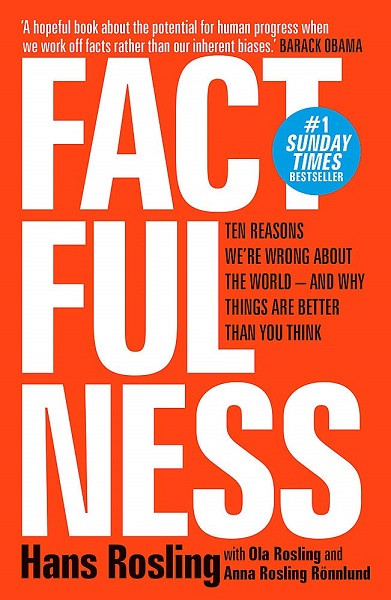
Roman über die Dystopie einer grün-linken Degrowth-, Vollversorgungs- und Kontroll-Zukunft
Der Roman „Freiheitsgeld“ von Andreas Eschbach beginnt als Krimi, steigert sich dann zum Polit-Thriller und endet als wahrgewordene Verschwörungstheorie. Doch der Reihe nach.
Die Handlung spielt im Jahr 2064 in einem Deutschland, das ganz nach grünen und linken Vorstellungen umgestaltet wurde: Degrowth, bedingungsloses Grundeinkommen und Corona-artiger Kontroll-Staat – natürlich alles zum Wohle der Bürger – sind die Stichworte. Die Menschen leben jetzt alle in Mega-Städten. Freie Natur und Wald kennt man nur noch vom Hörensagen. Um die Städte herum wurden riesige Naturschutzzonen angelegt, die kein Mensch mehr betreten darf. Alle ehemaligen Ortschaften in den Naturschutzzonen wurden dem Erdboden gleichgemacht. Statt dessen wurden riesige Wälder gepflanzt, um CO2 zu binden. Das Klima ist aber immer noch recht heiß.
Die Menschen des Jahres 2064 leben in kleinen Wohnungen und besitzen keine eigenen Autos mehr. Der Verkehr wird über zahlreiche automatisch und kostenlos fahrende Kleinbusse abgewickelt. Jeder besitzt ein Smartphone, das zugleich sein Geldbeutel ist, denn Bargeld gibt es nicht mehr. Die Menschen werden überall durch Kameras und Transponder überwacht. Der Bürger ist in allen seinen Aktionen und Bewegungen vollkommen durchschaubar und er kann nur über zugelassene Datensysteme Verkehrsmittel benutzen und Waren bezahlen. Upload-Filter kontrollieren das Internet. Die Abhängigkeit vom System ist vollkommen. Aber alle vertrauen dem System.
Jeder Bürger bekommt das sogenannte „Freiheitsgeld“. Es ist ein Basisbetrag, von dem man sein Leben bequem bestreiten kann, ohne große Sprünge zu machen. Man kann sich Geld dazu verdienen, muss aber nicht. Viele Gestalten in diesem Roman liegen deshalb nur noch in der Hängematte des Freiheitsgeldes. Die Gesundheitsversorgung ist ebenfalls kostenlos, aber völlig automatisiert. Es gibt personalisierte Medikamente. Außerdem sind Drogen freigegeben.
Was hingegen streng verboten ist, ist Schwarzarbeit und das Bezahlen in anderen Währungen. Damit wird verhindert, dass das System des Freiheitsgeldes ausgenutzt wird. Eine kleine Elite von Reichen und Prominenten wohnt in sogenannten „Oasen“, wo alles luxuriös eingerichtet ist und keine Kameras installiert sind. Auch die Polizei darf dort nicht ermitteln.
Andreas Eschbach ist es gelungen, diese seltsame Welt mit zahlreichen liebevoll ausgedachten Details zu beschreiben, die einen immer wieder zum Schmunzeln bringen. Nicht zuletzt auch deshalb, weil uns manches nur allzu bekannt vorkommt.
– – – – Achtung: Spoiler! – – – –
Im Zentrum des Romans steht Kommissar Ahmad Müller. Sein heiles Weltbild bekommt Risse, als der Altpräsident Havelock und der ehemalige Journalist Leventheim zur selben Zeit ermordet werden: Havelock hatte einst das Freiheitsgeld eingeführt, Leventheim hatte ihn dafür heftig kritisiert. Im Laufe der Recherchen erkennt Ahmad Müller gravierende Nachteile des Freiheitsgeldes, die Havelock und Leventheim der Öffentlichkeit bekannt machen wollten und deshalb sterben mussten:
- Es ist nicht nur so, dass sich ein allzu großer Teil der Bürger in die Hängematte des Freiheitsgeldes legt.
- Es ist auch so, dass die Bürger, die sich Geld dazu verdienen, horrende Steuern auf ihren Zuverdienst bezahlen müssen, um das Freiheitsgeld der anderen zu finanzieren. Das demotiviert zusätzlich, oder führt zu massiver Schwarzarbeit.
- Durch die Automatisierung mit Robotern und KIs gibt es immer weniger Arbeitsplätze. Nicht alle, die arbeiten wollen, können dies auch. Und da die Arbeitswilligen um diese wenigen Arbeitsplätze konkurrieren, sinken die Löhne.
- Die eigentlichen Profiteure sind die Besitzer der Roboter und KIs, die im Jahr 2064 den Löwenanteil der zu erledigenden Arbeit ausführen. Die Bezieher des Freiheitsgeldes werden praktisch mit einem Almosen abgespeist und haben keinen Anteil am Produktivvermögen.
Doch alle diese Nachteile reichen nicht aus, um die Menschen zum Umdenken zu bewegen. Alle haben sich an die „sichere“ Welt des Freiheitsgeldes und der Überwachung zu ihrer eigenen „Sicherheit“ gewöhnt und können es sich jetzt nicht mehr anders vorstellen.
Es ist aber alles noch schlimmer.
Ahmad Müller entdeckt, dass es hinter den Reichen eine noch kleinere Gruppe von Superreichen gibt. Diese wohnen nicht in den „Oasen“, sondern in gigantischen Residenzen in den Naturschutzzonen. Und sie haben große Pläne: Die Menschheit soll von 10 Milliarden auf 500 Millionen Menschen geschrumpft werden, denn in einer vollautomatisierten Welt braucht man einfach nicht mehr so viele Menschen, und es schont die Umwelt. Das geschieht mithilfe der personalisierten Medikamente, in die insgeheim Empfängnis-verhütende Mittel gepanscht werden. Die Auswahl wird nach dem Verhalten getroffen: Wer sich in die Hängematte des Freiheitsgeldes legt, darf sich nicht fortpflanzen. Den Leuten erzählt man das Märchen, die Fruchtbarkeit wäre deshalb stark reduziert, weil man in der alten Zeit so viele Hormone in die Umwelt gelangen ließ. Natürlich haben die Superreichen alles direkt oder indirekt in der Hand: Die Medien, die Politik, das Internet, und sämtliche Daten über die Bewegung von Personen oder Geld.
Hinzu kommt, dass die Superreichen beschlossen haben, dass die Welt modern genug ist: Deshalb gibt es schon seit Jahrzehnten keine neuen Erfindungen mehr. Neue Erfindungen bergen nämlich immer Risiken in sich, und Risiken will man auf jeden Fall vermeiden. Schließlich zapfen die Superreichen einigen besonders gesunden Normalbürgern – immerhin gegen Geld – einen speziellen Stoff aus dem Blut ab, mithilfe dessen sie praktisch unsterblich werden, während die Spender unwissentlich mit einem Verlust an Lebenszeit bezahlen. Gegenüber der Normalbevölkerung wird das hohe Alter der Superreichen verborgen gehalten.
Am Ende des Romans dringt Ahmad Müller in die Residenz einer Superreichen in der nahegelegenen Naturschutzzone ein. Es kommt zum Showdown zwischen Ahmad Müller und der Superreichen: Wird Ahmad Müller die Welt retten? Oder sitzen die Superreichen am längeren Hebel?
Fazit
Andreas Eschbach ist es gelungen, dem Leser eine grün-linke Dystopie lebendig vor Augen zu führen und hat dabei – nicht ohne Augenzwinkern – auch manche allzu steile Verschwörungstheorie mit verarbeitet. Die Lektüre dieses Romans stellt eine gute Impfung gegen die Gutgläubigkeit grün-linker Gutmenschen dar: Was manche naiv als naheliegende und innovative Lösungen für unsere Probleme ansehen, läuft in Wahrheit auf ein einziges Horrorszenario hinaus.
Bewertung: 5 von 5 Sternen.

